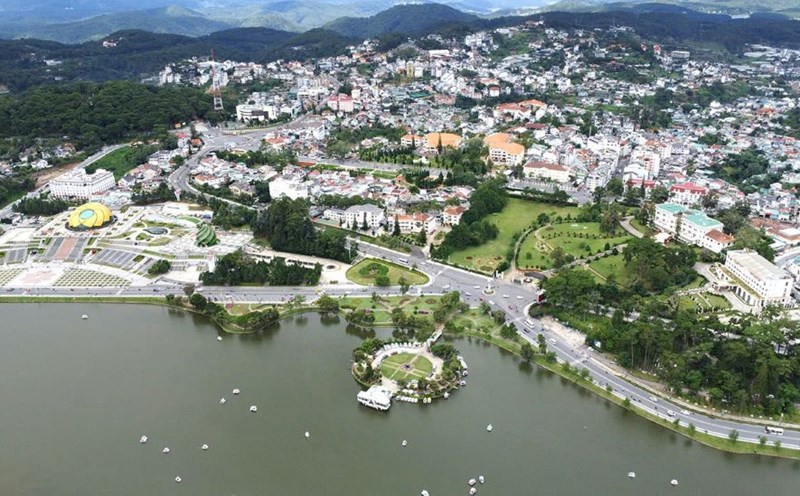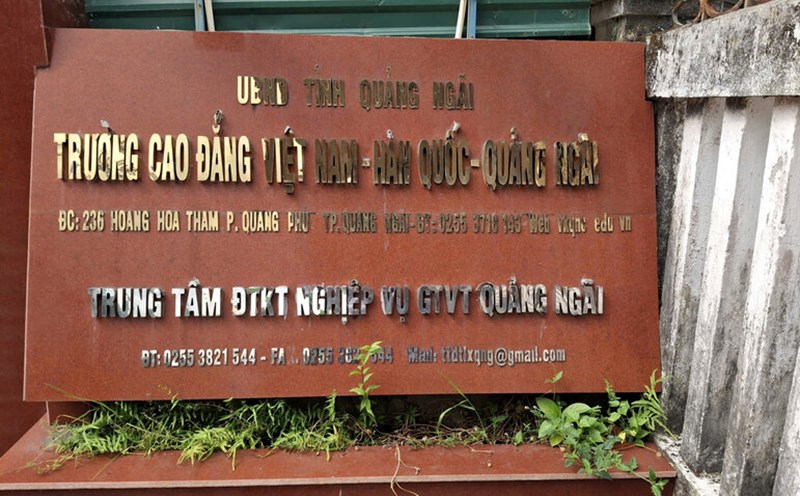On August 13, the Ministry of Construction and the Ministry of Science and Technology held a conference to summarize the Project for the development of sustainable smart cities in Vietnam for the period 2018-2025 and orientation to 2030.
Speaking at the opening of the Conference summarizing the Project for the development of sustainable smart cities in Vietnam for the period 2018-2025 and orientation to 2030, Minister of Construction Tran Hong Minh emphasized that in 2018, the Prime Minister issued Decision No. 950/QD-TTg approving the "Project for the development of sustainable smart cities in Vietnam for the period 2018-2025, orientation to 2030" (Project 950), marking the first milestone for the development of sustainable smart cities nationwide.
After nearly 7 years of implementation, the Project has achieved remarkable initial results, contributing to providing basic contents suitable for smart urban development in Vietnam, including: smart urban planning; building and managing smart urban areas; providing smart urban utilities for organizations and individuals in urban areas with the foundation being the urban technical infrastructure system and the ICT infrastructure system (IT and communication technology) ...
In order to carry out the assigned tasks, the Ministry of Construction, together with ministries and branches, has developed and issued guidelines, criteria and framework for smart urban development.
In localities, 37 provinces and cities have issued their own Smart Urban Development Projects and Plans. Many applications in fields such as transportation, healthcare, and education have begun to bring practical utilities to people and businesses. The development of smart cities is strongly linked with the national digital transformation process.
Minister Tran Hong Minh assessed that developing smart cities brings many benefits, while there are many very new and unprecedented contents. Therefore, we need to discuss and find answers to the big questions that are being raised such as resources and institutions for smart city development, mechanisms for data to truly become a common asset, solutions for people to be placed at the center of smart city development...
According to the Report of the Ministry of Construction, Project 950 has set out 10 groups of tasks, main solutions and 7 groups of priority tasks.
Accordingly, from 2019 to present, the Ministry of Construction has continued to implement training and fostering for construction staff, in which the field of sustainable smart urban development and digital transformation has organized 97 classes with 4,971 students nationwide.
Regarding increasing the mobilization of investment capital and technical assistance from domestic and foreign countries, the Ministry of Construction has promoted cooperation in the field of smart urban development through signing a cooperation agreement with the three ministries of construction of Korea, Japan and China...
According to the Ministry of Construction, the development of smart cities in Vietnam still faces some difficulties and obstacles, mainly human resources, data, institutions, etc.
Human resources for smart city development in our country are still lacking, mainly part-time personnel. Vietnam also lacks a legal framework and management tools to implement planning and management of smart urban development; there is no shared database, data is not comprehensive and comprehensive...
The implementation of smart cities is still individual, disjointed, lacking connectivity, synchronization, mostly piloted, and does not have much practical experience.
The Ministry of Construction believes that in the period of 2025-2030, smart urban development will continue to be a global trend, strongly promoted by scientific and technological advances, sustainable development requirements and modern urban governance pressure. Digital transformation, artificial intelligence and big data have become the main driving forces for global economic and social development.
In Vietnam, 26/34 localities after the merger have implemented smart city development projects, showing the interest, promotion and necessary need to continue implementing smart cities.
At the same time, the requirements of administrative unit arrangement, apparatus streamlining and administrative reform are posing new requirements for a flexible, integrated, and comprehensive urban management model.









